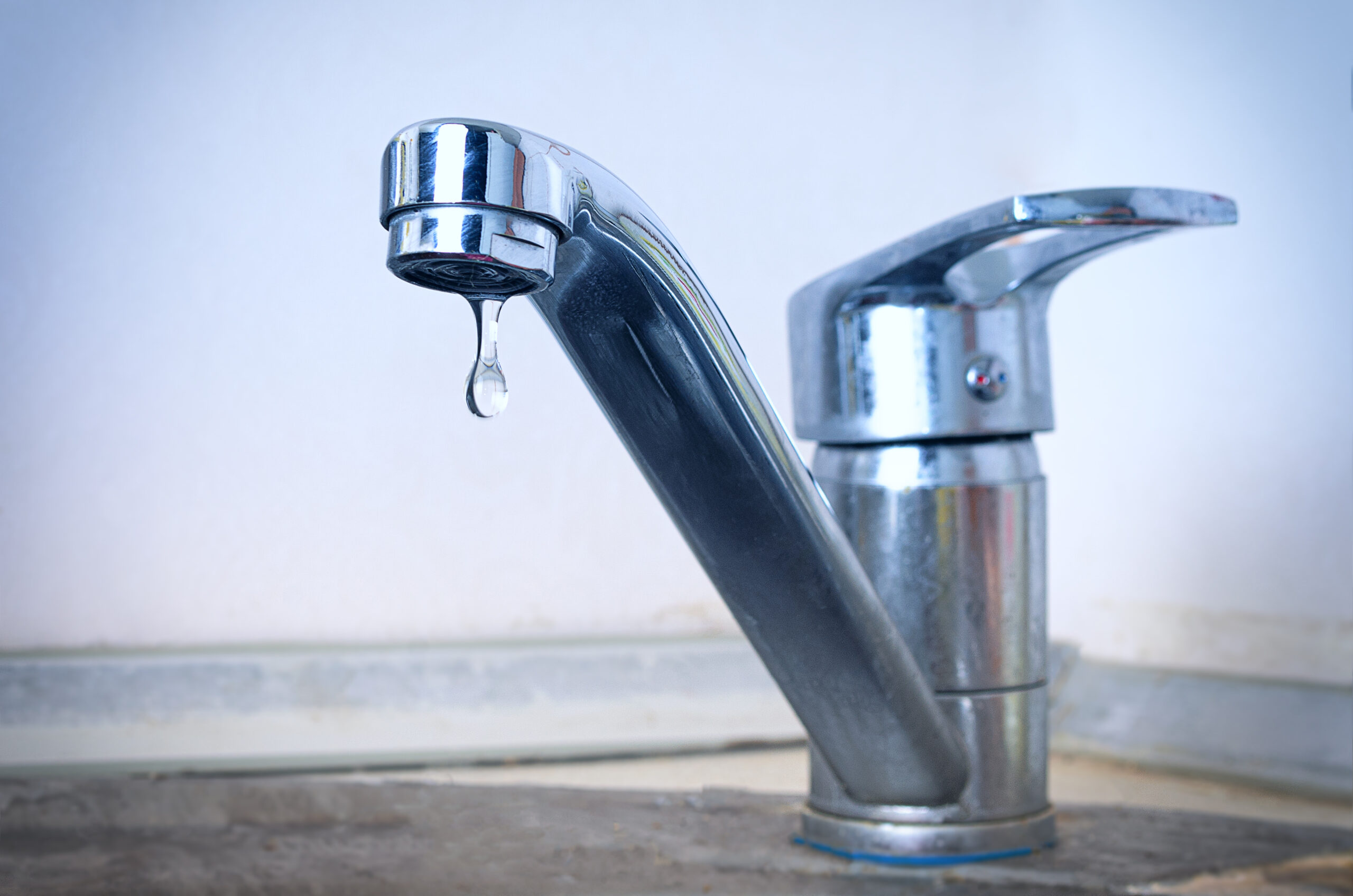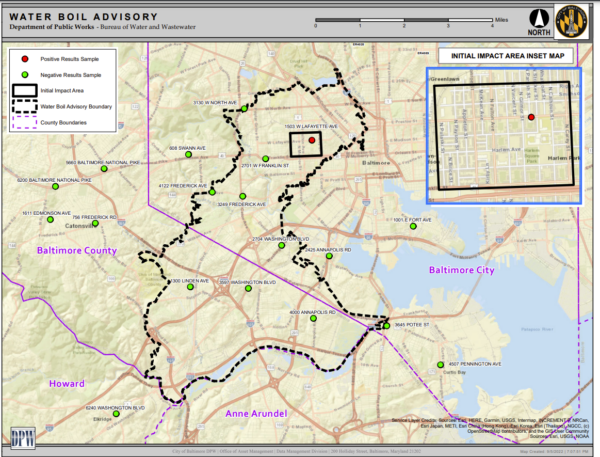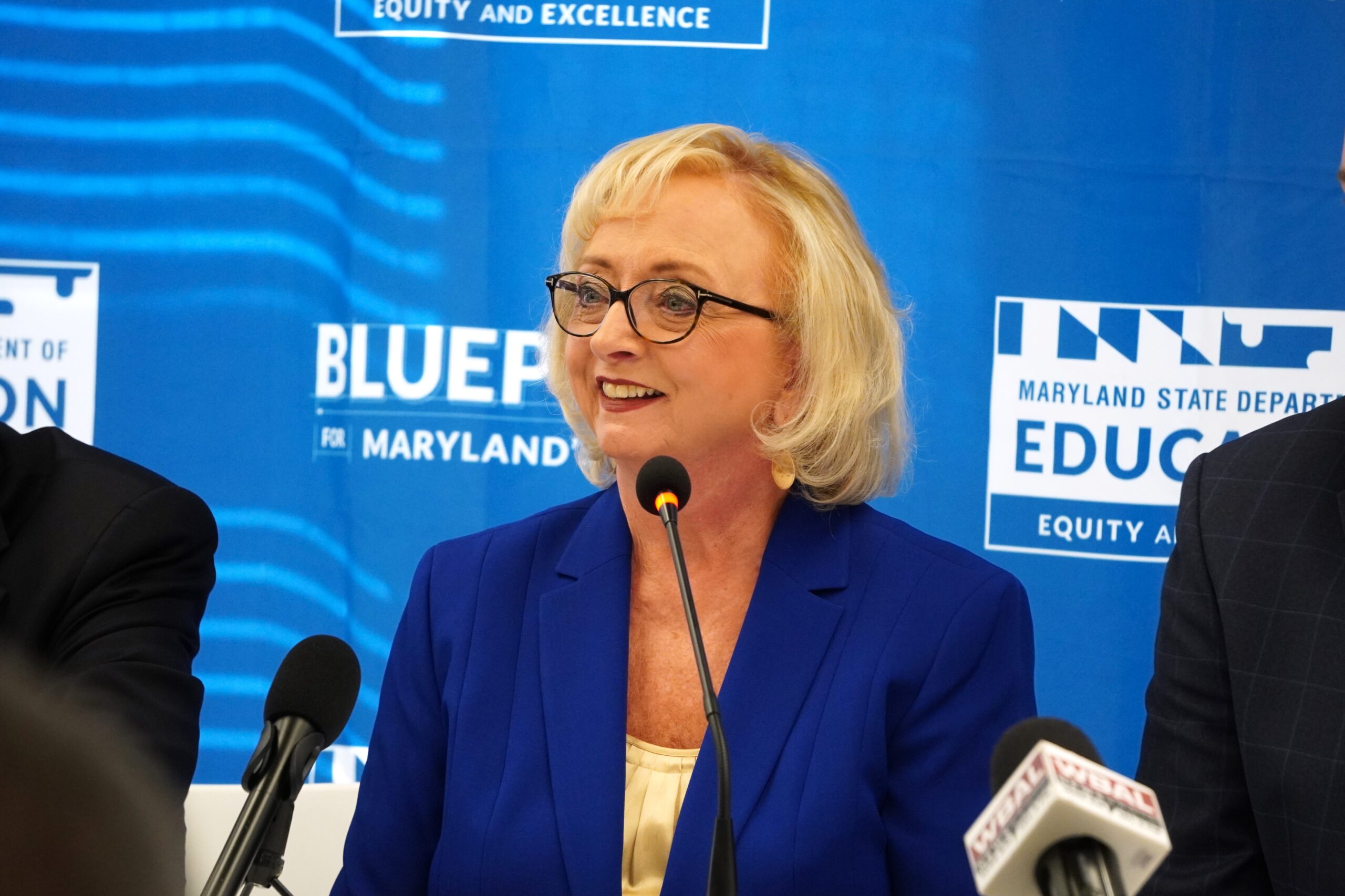With parts of Baltimore under boil warning, advocates push for improvements to city’s water system

One day after Baltimore officials informed residents that E. coli spread into parts of the city’s water system and issued a boil-water advisory, advocates are calling for improvements to the city’s water infrastructure.
“No one in Baltimore should have to worry that their family could get sick from the water coming out of their tap,” Emily Scarr, director of the Maryland PIRG Foundation, said Tuesday. “The boil-water advisory is an all-too-often reminder that more needs to be done to protect our water.”
John Rumpler with the non-profit Environment Maryland Research and Policy Center, said the millions of dollars in federal money from the infrastructure plan should be used to update the city’s water system.
“We should treat our water as the precious life-giving resource it is,” said Rumpler, director of the center’s clean water program.
On Monday, the city announced that tests showed contaminated water in parts of West Baltimore, a majority Black part of the city.
The announcement from Baltimore’s Department of Public Works said the boil water advisory affected 1,500 commercial facilities and residences in the city.
The department recommends boiling water for one minute and letting water cool before using it to brush teeth, wash dishes and prepare food.
According to the Centers for Disease Control and Prevention, E. coli can create intestinal distress such as stomach cramps, diarrhea and vomiting. However, there are rare cases it can cause life-threatening symptoms about a week after infection.
The CDC also warns people not to swallow any contaminated water when bathing or showering.
When the city issued the boil-water advisory Monday, city workers also distributed one gallon of water per household.
On Tuesday, families were offered three gallons of water per household.
The city’s Department of Public Works announced Tuesday evening families can pick up water at three locations, continuing Wednesday at 9 a.m.:
- Harlem Park Elementary/Middle School, 1401 W. Lafayette Ave.
- Middle Branch Park, 3301 Waterview Ave.
- Landsdowne Library, 500 3rd Ave.
The Maryland Department of Health, which is providing regulatory oversight and technical assistance, said in a news release that the “potential threat appears to be limited to the area identified.”

Baltimore Councilmember John Bullock (D), who represents the affected area of the city, said Tuesday he understands some of the frustration from residents in not receiving information sooner.
The city’s public works department discovered the contamination during routine monthly testing Saturday.
“I know I share the same frustration when communication didn’t seem as forthcoming, or as frequent as we would have liked it to be,” Bullock said. “A lot of folks have been calling us. Just continue to keep the lines of communication open and try to help each other along the way.”
As of Tuesday evening, no cause had been determined.
Because the city provides water to parts of neighboring Baltimore County, county officials announced a boil water advisory for residents in the southwestern part of that jurisdiction including Arbutus, Halethorpe and Lansdowne. A statement from Baltimore County noted that no bacteria was detected in the county.
“The health of Baltimore County residents is a top priority, and we want to be sure that everyone in the advisory area is taking all of the necessary precautions,” said County Executive Johnny Olszewski (D). “While Baltimore County does not have operational control of the water system, we are making some of the County’s certified water testers available to assist the city’s efforts in quickly resolving this issue.”
Sen. Mary Washington (D-Baltimore City) and other state legislators had already been working before the contamination was found on legislation to improve access to clean and affordable water.
Washington, who called the city’s current situation a “water crisis,” highlighted a report from the Maryland Advisory Committee to the U.S. Commission on Civil Rights that amplifies ongoing water problems, especially in underserved communities.
“We really need to know what the cause of the contamination is,” she said. “We need to know who is responsible and also need to develop solutions to make sure this doesn’t happen again. This is absolutely calling on the city to ensure this happens.”
Democratic gubernatorial nominee Wes Moore issued two statements Tuesday.
The first praised Baltimore Mayor Brandon Scott (D) for his response to the E. coli contamination and underscored the need for partnership in responding to such a crisis.
“We will work in partnership with Baltimore leaders to ensure that our communities are strong and supported,” Moore said.
In the second statement Moore said, “For too long people in our state continue to get left behind. And that fact becomes painfully clear to us when our fellow Marylanders cannot even access the basic necessities. We must commit to improving our infrastructure and working with stakeholders at every level of leadership to ensure all Marylanders are safe and healthy.”




 Creative Commons Attribution
Creative Commons Attribution